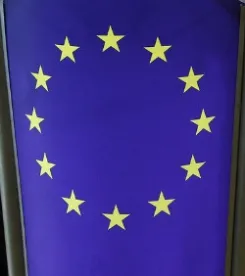In September 2015, news broke that Volkswagen had manipulated software on 11 million vehicles to avoid emissions requirements in the United States and elsewhere. Within weeks, the United States government opened a criminal investigation. Within months, it filed civil lawsuits for false advertising and violations of the Clean Air Act. By December, the company faced more than 500 class action lawsuits. By early 2017, Volkswagen pled guilty to mail and wire fraud, and the United States had filed criminal charges against numerous Volkswagen executives. To date, the company has spent tens of billions in fines and settlements to deal with the crisis.
Volkswagen is not alone. To be sure, data falsification investigations and lawsuits have hit companies around the world in the past few years. Recently, Takata and Toyobo resolved data falsification cases with the US Department of Justice (DOJ). Last fall, Kobe Steel announced that it had falsified data to make it appear as though certain products met customer specifications. In Japan, in fact, nearly a dozen companies have publicly disclosed data falsification issues in recent months. Elsewhere, Ford, Bosch, Daimler and the Finnish company, Nokian, have had to deal with either lawsuits or investigations related to allegations of falsifying testing.
In April 2018, partially in response to the Volkswagen scandal, the European Commission presented a proposed action plan, named a "New Deal for Consumers,” aimed at strengthening existing consumer protection measures, including in data falsification matters. The New Deal must now be adopted by the European Parliament and the Council of the EU and then be implemented by each EU Member State.
Currently, there are several EU Directives offering protection to consumers. Directives are general legal acts of the EU that require Member States to achieve a particular objective by implementing specific national legislation within a specific time frame set in the Directive. Contrary to Regulations, Directives provide Member States with some leeway about how to best achieve the goals set at the EU level.
Under the current EU Directives protecting consumers, companies are prohibited, among other things, from engaging in misleading commercial practices, i.e., by communicating false information (or information which deceives or is likely to deceive the average consumer) or by omitting material information, thereby causing an average consumer to enter into a transaction that he would not have entered into otherwise. At present, failure to comply with these Directives, as implemented in each Member States’ national law, can lead to penalties imposed by the Member States. Each country is free to set the level of penalty it deems appropriate.
The New Deal for Consumers seeks to expand the rights of consumers who are the victims of, among other things, misleading commercial practices—including data falsification—in two important ways: 1) by introducing the possibility for consumers to take part in a “European-style class action” lawsuit and 2) by providing for harsher sanctions in case of violations of the law.
(i) A “European-style class action” to seek redress for victims of misleading commercial practices
First, the New Deal for Consumers would modernize and replace current Directive 2009/22/EC by allowing European-style class actions against companies that engage in certain misleading commercial practices.
Under the existing Directive, certain “qualified” entities, such as consumer organizations, may bring representative actions to stop violations of EU rules that are harmful to the collective interests of consumers.
The New Deal expands the rights of these “qualified” entities by allowing them to not only stop violations, but also to seek other redress on behalf of aggrieved consumers. For instance, under the New Deal, qualified entities can seek compensation, repair, replacement, price reduction, contract termination, or even reimbursement of the price paid on behalf of consumers (see article 6 of the proposal).
This “European class action” would differ from the mechanism known in the United States because the action would only be carried out by “qualified entities” designated by Member States. These qualified entities, in turn, would have to satisfy certain criteria: they must be properly established, be not for profit and have a legitimate interest in ensuring compliance with relevant EU law.
It remains to be seen whether “European class actions” will be efficient. This can be questioned in light of other experiences within the European Union. In France, for example, a similar mechanism was introduced in 2014 to enable government-approved groups to bring actions on behalf of consumers in relation to, among others, consumer rights and antitrust, but its success has been very limited. In most cases, the impact of actions brought by these associations has been, at best, symbolic.
(ii) Harsher penalties
Second, the New Deal for Consumers would provide for harsher penalties for certain violations, including data falsification matters.
Following the “Dieselgate” scandal, Volkswagen had to pay tens of billions in settlements and fines in the United States. At present, however, the EU Directives do not provide for a uniform fine in all Member States. Accordingly, EU countries are free to set penalties for misleading commercial practices as they deem appropriate. As a consequence, the penalties set out in national laws vary widely across the European Union and are often set at a low level. For example, legislations in France, the Netherlands and Poland allow fines of up to 10 percent of a company’s annual sales for misleading consumers. In Lithuania and Croatia, however, the maximum fines for such behavior are set at, respectively, only €8.688 and €13.157.
The New Deal proposes to amend four Directives, including Directive 2005/29/EC concerning unfair commercial practices (which includes misleading practices), in order to provide for harsher penalties.
Under the proposal, for widespread violations, such as the misleading of consumers, that have an impact in several Member States, national authorities would have the power to impose a fine on a company of up to 4 percent of such company’s sales (see article 1 of the proposal). This would be a minimum standard that each Member State would be required to respect. Member States would be able to provide for higher fines (which some countries already do).
Next Steps
The New Deal for Consumers is currently in draft form. The Directive proposals must now be examined and adopted by the European Parliament and the Council of the EU. The Commission has called the European Parliament and Member States in the Council “to work together over the next year to agree the proposed legislative changes onto the statute book before the European Parliament elections in May 2019.”
If adopted, the Directives would then have to be implemented by each EU Member State into its national law. The proposed Directives require Member States to implement them within 18 months of their entry into force and apply them within 6 months after the implementation deadline. Consequently, if adopted next year, it could take another two years until all countries in the European Union start applying the New Deal for Consumers.
We would also like to thank Sarah Hajam for her contributions to this article.





 />i
/>i
